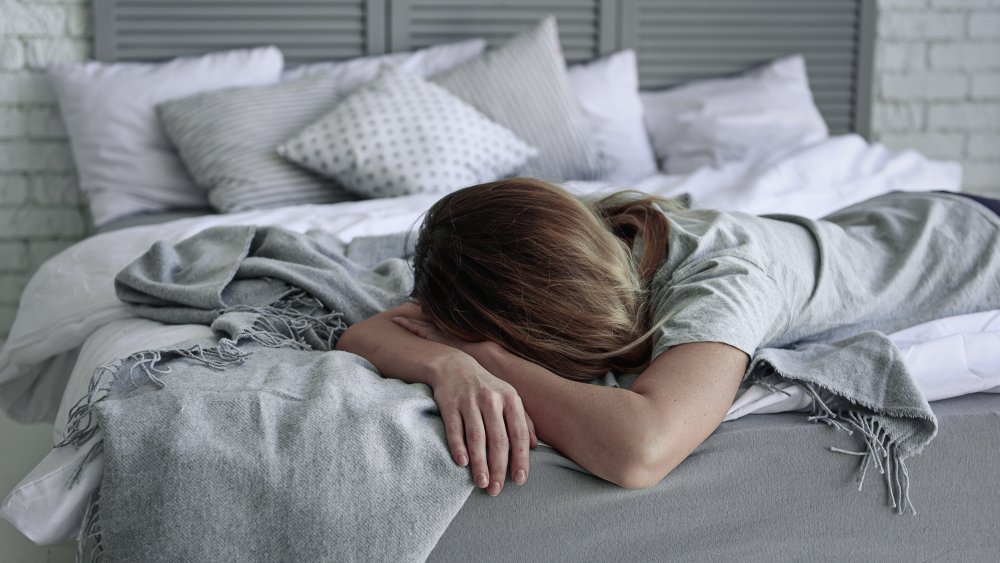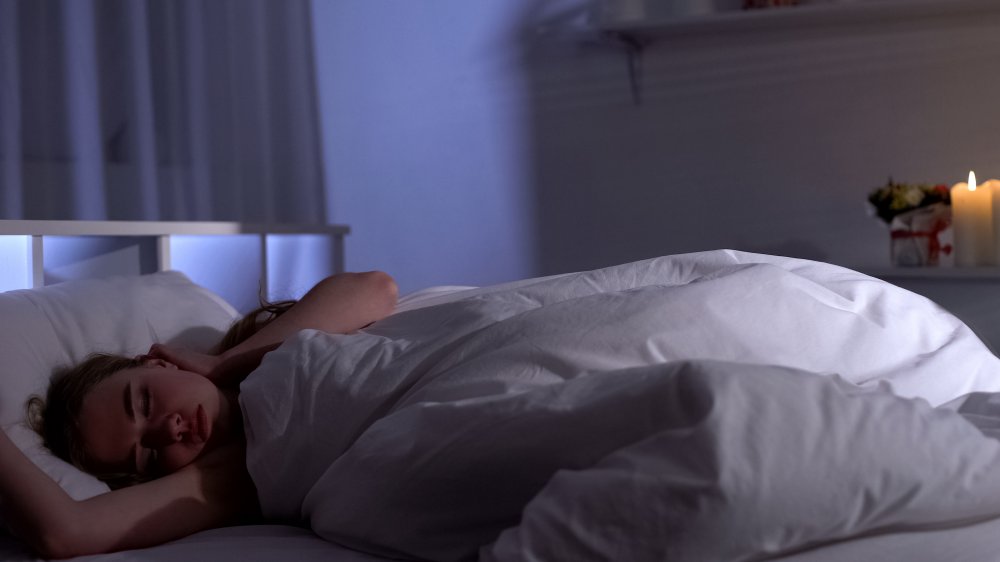What Happens To Your Body When You're Suffering From Relationship Anxiety
Things happen to us when we fall in love. Our brains flood our bodies with chemicals including adrenaline, dopamine, and oxytocin that make use feel happy and fill us with euphoria. Falling in love can also give us a shot of cortisol, the stress hormone, which makes us queasy and which can lead to appetite loss (via Best of Life).
Just as our bodies respond in different ways to a positive emotion like falling in love, our bodies also respond to negative emotions like anxiety, which can trigger a "fight or flight" response. While Harvard says the body of research on anxiety and its effects on our bodies is scanty, research has also been able to establish an association between our emotions and our physical state.
Anxiety, no matter its cause, has been linked to chronic illnesses including heart disease, respiratory disorders, and stomach problems. Anxiety, even the kind that that stems from relationship worries or woes, can cause symptoms related to these issues such as abdominal pain, digestive issues, nausea, fatigue, headache, shortness of breath, trembling, muscle tension, or sleeping issues such as insomnia (via Healthline).
If this sounds like you, and you think your relationship might be to blame, relationship anxiety may actually be making you physically ill.
Triggers for relationship anxiety
Clinical counselor Karla Ivankovich tells Health that there is a whole body of fears that make up relationship anxiety, including, "A fear of abandonment, feeling as if they care more, incessant worry about infidelity, or an overall fear about the relationship's viability result in a lack of trust." There are also many reasons why, after the initial chemical rush triggered by falling in love fades somewhat, relationship anxiety can set in. These include past relationships with exes, your relationship with your parents, poor communication... and social media.
"I see relationship anxiety flare up when comparing relationships on social media," Ivankovitch tells Health. "The compare-and-contrast game promotes worry that your relationship is not as successful as others, and causes anxious thoughts to develop as you ruminate about why your relationship isn't as 'successful' as others."
If you are suffering from relationship anxiety, relationship experts like Ivankovitch say you need to come clean about your concerns with both yourself and your partner. Because if coming clean means dealing with — and potentially fixing —physical symptoms that have been linked to anxiety disorders, we think it's worth it.

